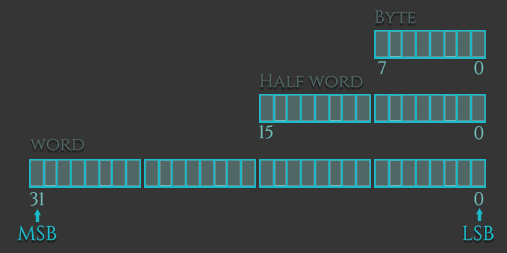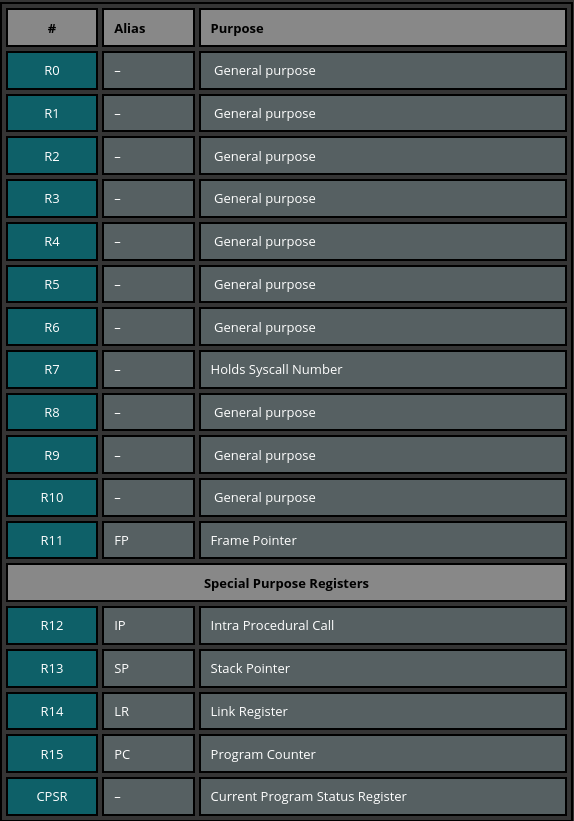In this post of ARM assembly basics, we will talk about the data types and registers. So let’s get started.
Data types
Similar to high-level programming languages, e.g. C/C++, ARM supports different types of data. Data can be 1:
- signed and unsinged bytes
- signed and unsinged halfwords
- signed and unsinged words

For example, they can be used with load and store operations as follows:
ldr # Load Word
ldrh # Load unsigned Half Word
ldrsh # Load signed Half Word
ldrb # Load unsigned Byte
ldrsb # Load signed Bytes
str # Store Word
strh # Store unsigned Half Word
strsh # Store signed Half Word
strb # Store unsigned Byte
strsb # Store signed Byte
Registers
The number of registers depends on the versions of ARM processors. However, only 16 first general purpose registers are accessible by user-level code (of course, there are some exceptions). But, here we assume that user-level code will only access the general purpose registers 0-15.
The following table lists them and their descriptions 1.

